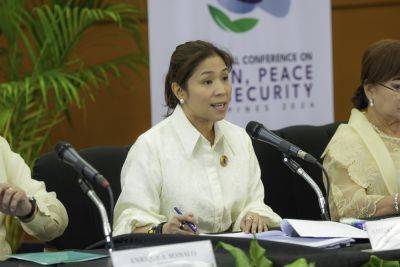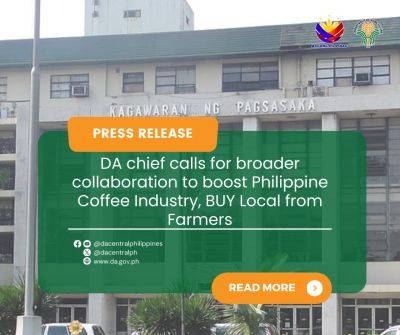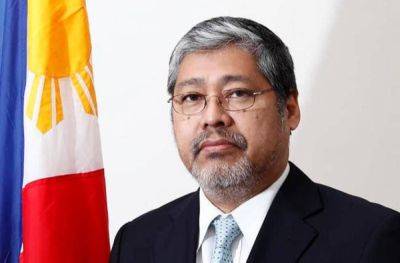Pangandaman calls for gender mainstreaming in national budget
MANILA, Philippines — Budget Secretary Amenah Pangandaman underscored the need to mainstream gender and development in the national budget at the first-ever high-level ministerial International Conference on Women, Peace and Security (WPS) hosted by the Philippines.
“What we should do, more than tagging this budget, (is that) we should already mainstream women in the entire national budget. You don’t allocate just five percent. When agencies, when our leaders propose the budget, they have to ensure that the Women’s Budget or women empowerment programs and projects is the goal of that budget. It’s like the entire budget should be providing livelihood, providing work, providing jobs to everyone,” the Department of Budget and Management chief explained during the thematic session on financing strategies for WPS initiatives held on Oct. 29, 2024.
In her opening statement, Secretary Pangandaman also reported that 16.68 percent of the entire national budget in 2023 was allocated for Gender and Development (GAD), much higher than the mandated minimum of five percent allocation for gender programs, projects and activities.
She then shared the government-funded WPS initiatives that promote women empowerment and lasting peace and security in the country.
These include social protection programs, such as the Pantawid Pamilyang Pilipino Program (4Ps) which also covers additional grants for pregnant and lactating mothers, and programs geared toward women’s economic empowerment such as the Pondo sa Pagbabago at Pag-asenso (P3) Program.
Secretary Pangandaman also cited the People’s Survival Fund that addresses women’s needs during climate crisis and disasters, as well as the PAMANA or the PAyapa at MAsaganang PamayaNAn Program which strengthens peacebuilding initiatives, reconstruction and development in the Bangsamoro Autonomous Region in Muslim Mindanao.
Meanwhile, Australian Ambassador for gender equality Stephanie Copus Campbell emphasized the vital role that donors, such as the private sector and philanthropic groups, play in the successful implementation of WPS initiatives.
Campbell also highlighted the importance of telling women’s stories backed with research and






